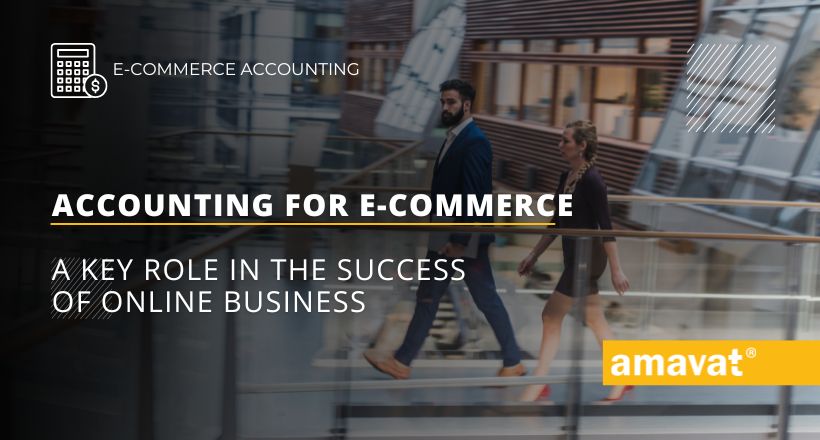Accounting for e-commerce: A key role in the success of online business
The modern world of e-commerce presents numerous challenges for entrepreneurs, and success often depends on a variety of factors. Accounting, though often undervalued, plays a fundamental role in building profitability and financial stability for companies operating online. In this article, we will explore how an appropriate approach to accounting can transform an online business into a true success.
Challenges of accounting in e-commerce
Unlike traditional forms of trade, e-commerce requires specific accounting solutions. Among the main challenges are:
- A large volume of sales transactions: In e-commerce, the number of issued invoices and transactions can range from several hundred to even hundreds of thousands, depending on the scale of the business. Managing such a large volume of data effectively is nearly impossible without automation support, significantly increasing the risk of accounting errors.
- Settlements from payment gateways: Monitoring the accuracy of transactions processed through payment gateways or deferred payment systems with actual account inflows is one of the more challenging issues for both sellers and accountants. A lack of appropriate tools and knowledge of industry specifics can lead to significant discrepancies.
- Complexity of transactions: Online sales generate a variety of transactions, including returns, product complaints, and various payment methods.
- Tax regulations: Entrepreneurs must be aware of the dynamically changing VAT regulations and other tax laws, which can vary depending on the location in which they operate.
- Inventory management: Maintaining the right level of inventory is essential to ensure continuous sales. Excessive stock can lead to losses, while product shortages can result in the loss of customers.
- Cost analysis: Costs related to logistics, marketing, and other activities must be carefully monitored. Poor cost management can significantly impact the profitability of a business.
Key functions of accounting in e-commerce
Accounting in e-commerce serves several essential functions that are critical for achieving success. Here are some of them:
- Financial planning: Accountants assist in developing long-term financial strategies that consider the unique challenges of the online market. With their expertise, entrepreneurs can make better decisions regarding investments and resource allocation.
- Tax management: Accountants provide essential information for optimizing tax burdens. A well-organized approach to taxes can help avoid legal issues and save significant amounts.
- Cost control: Regular monitoring of expenses allows for the identification of areas where savings can be made. Proper cost management directly translates to increased profitability.
- Inventory management: Accounting supports entrepreneurs in monitoring stock levels, helping to avoid losses due to overstocking and ensuring an adequate level of product availability.
- Financial performance analysis: Regular reporting of financial results enables entrepreneurs to better understand which products and markets generate the highest revenue. These analyses assist in identifying trends and optimizing marketing activities.
Why accounting is essential for e-commerce success
Here are key reasons why accounting is so important in e-commerce:
- Continuous financial control: Accurate financial data allows for quick decision-making.
- Regulatory compliance: Accounting ensures that the business operates in accordance with applicable laws. Tax discrepancies can lead to significant penalties and negatively impact on the company’s reputation.
- Increased profitability: Good cost management and process optimization lead to increased profits.
- Better market understanding: Financial analyses provide insights into customer preferences and market trends.
Technologies supporting accounting in e-commerce
In recent years, technology has played a crucial role in streamlining accounting processes in e-commerce.
Modern accounting software, such as ERP (Enterprise Resource Planning) systems or dedicated financial management applications, offers a range of functionalities that can revolutionize the approach to accounting:
- Process automation: Many tasks that previously required significant time and resources can now be automated, allowing accountants to focus on more strategic aspects of the business.
- Real-time data availability: Cloud-based accounting systems allow access to data from anywhere, which is particularly important in the era of remote work. This enables faster decision-making and better collaboration with teams.
- Data management: Modern analytical tools allow for deeper analysis of financial data, facilitating better forecasting and financial planning.
Outsourcing accounting services in the e-commerce sector
It is also worth noting the growing popularity of outsourcing accounting services in the e-commerce sector. Collaborating with external accounting firms that specialize in servicing online stores allows entrepreneurs to focus on business development while ensuring that financial matters are handled professionally and in accordance with applicable regulations. Outsourcing provides access to experts who continuously monitor legal and technological changes, minimizing the risk of errors and reducing costs associated with employing internal accounting teams.
amavat® offers a unique, comprehensive range of accounting services dedicated to dynamically growing e-commerce companies nationwide. Our collaboration is an easy and transparent path to achieving your business goals. With amavat®, you can focus on what matters most to you, confident that all financial matters are in the hands of professionals ready to support the growth of your business in the world of e-commerce: Contact us.
Summary
Accounting in e-commerce is not just an obligation but a foundation on which the success of any online business rests. With proper financial management, entrepreneurs can not only enhance their competitiveness but also build a stable and profitable online business. Investing in experienced accountants, whether in the form of permanent employment or through outsourcing, is a key step toward optimizing processes and adapting strategies to the dynamically changing e-commerce market.





